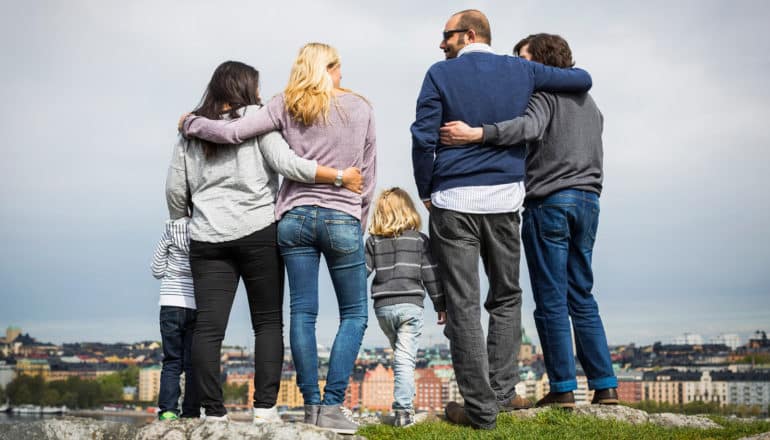
Mental and physical health disparities are worse among younger generations of queer Americans, according to a new study comparing lesbian, gay, and bisexual millennials and their older peers to those of their straight counterparts.
In the first-ever population-based national study comparing mental and physical health of lesbian, gay and bisexual (LGB) Americans to their straight counterparts, Michigan State University sociologist Hui Liu and research partner Rin Reczek, professor of sociology from Ohio State University, find that when compared to their straight counterparts, LGB millennials have worse health disadvantages than their older peers, though disparities persist throughout older generations as well.
“Because younger LGB generations have grown up in a more progressive era, we expected that they may experience lower levels of lifetime discrimination and thus have lower levels of health disadvantage than older LGB generations. However, our results showed the opposite to be true,” Liu says.
The study examined five key indicators of physical and mental health—psychological distress, depression, anxiety, self-rated physical health, and activity limitation—of nearly 180,000 study participants across millennial, generation X, baby boomer, and pre-boomer generational cohorts.
Surprisingly, Liu and Reczek found that health disadvantages for LGB individuals increased among more recent generational cohorts, with LGB millennials suffering more health disadvantages than LGB gen-Xers or baby boomers. Moreover, bisexual respondents experienced even worse health disparity trends across generations than their gay and lesbian peers.
For example, the study found that gay and lesbian baby boomers are 150% more likely to experience both anxiety and depression compared to straight peers; bisexual Boomers are also about 150% more likely to experience anxiety than their straight peers but over twice as likely to experience depression.
Comparatively, for gay and lesbian millennials, the likelihood of feeling anxious and depressed is almost 200% and 250% higher than that of their straight peers, respectively, and bisexual millennials have an almost 300 and 380% increased likelihood than their straight peers.
“Older LGB people have experienced significant interpersonal and institutional discrimination throughout their lives, so they may perceive the current era to be relatively better than the past, and therefore may experience improved well-being as a result of this perception,” Liu says.
She also suggests that the findings could be explained by the fact that older LGB people have had more time to develop better coping skills than their younger peers, and that more millennials identify as LGB than older generations.
Liu is hopeful that this study will demonstrate that advancements in civil rights and social acceptance for the LGBTQ+ community have not yet translated into health equity.
“These health disparities may be a result of more insidious and deeply embedded factors in US society that are not eradicated simply with changes in marriage or discrimination laws,” Liu says.
“Instead, more drastic societal changes at both the interpersonal and institutional levels must take place. Public policies and programs should be designed and implemented to eliminate health and other major disadvantages among LGBTQ+ Americans.”
The study appears in the journal Demography.
Source: Michigan State University
The post Disparities are worse for LGB millennials than boomers appeared first on Futurity.
from Futurity https://ift.tt/3qgYVWr
No comments:
Post a Comment